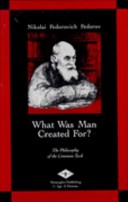Kantianism is a School and Not a Culture
Notes:
Folksonomies: cosmism
Taxonomies:
/science/social science/philosophy (0.644927)
/education/school (0.431365)
/science (0.419414)
Keywords:
Pure Reason (0.910177 (positive:0.434447)), narrow limits (0.900542 (neutral:0.000000)), Practical Reason (0.889265 (neutral:0.000000)), national armed forces (0.806069 (neutral:0.000000)), Critique (0.665875 (positive:0.434447)), collective science (0.650183 (negative:-0.675004)), scientific culture (0.647494 (negative:-0.675004)), academic study (0.633837 (negative:-0.215441)), moral code (0.631065 (negative:-0.431635)), Critical philosophy (0.630563 (neutral:0.000000)), personal affairs (0.627578 (neutral:0.000000)), united humanity (0.626059 (neutral:0.000000)), atmospheric phenomena (0.625545 (neutral:0.000000)), common action (0.618263 (neutral:0.000000)), Kantianism (0.494387 (negative:-0.675004)), school (0.494147 (negative:-0.675004)), experiments (0.491656 (negative:-0.608022)), people (0.488133 (negative:-0.443182)), minors (0.456478 (negative:-0.431635)), mankind (0.452706 (neutral:0.000000)), vice (0.451452 (neutral:0.000000)), need (0.448108 (negative:-0.675004)), crimes (0.447771 (negative:-0.431635)), kind (0.445765 (neutral:0.000000)), neo-Kantianism (0.444631 (neutral:0.000000)), solution (0.444422 (neutral:0.000000)), regulation (0.443775 (neutral:0.000000)), experience (0.443160 (neutral:0.000000)), laboratory (0.443092 (negative:-0.215441)), life (0.442029 (neutral:0.000000))
Entities:
Kantianism:Person (0.897129 (negative:-0.675004)), Russian:City (0.638528 (negative:-0.431635))
Concepts:
Scientific method (0.975484): dbpedia | freebase
Immanuel Kant (0.917121): dbpedia | freebase | opencyc | yago
Epistemology (0.903721): dbpedia | freebase | opencyc
Empiricism (0.899139): dbpedia | freebase
Logic (0.773370): dbpedia | freebase | opencyc
Religion (0.770557): dbpedia | freebase | opencyc
Science (0.720829): dbpedia | freebase | opencyc
Morality (0.687243): dbpedia | freebase





